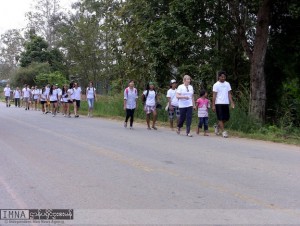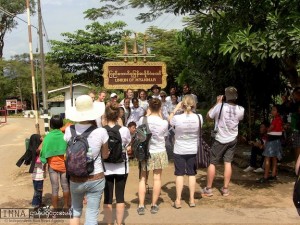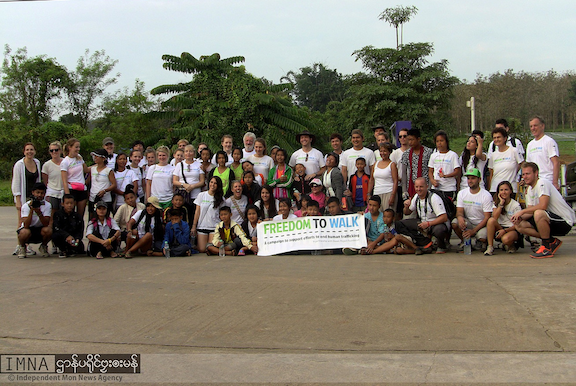Min Thu Kha Aung – More than 70 participants joined the final day of a 370-kilometer walk from Bangkok to the Burma border in Three Pagodas Pass on Saturday to support efforts to end human trafficking across the globe.

According to co-founder Chiengtong, the Walk aimed to raise money for five beneficiary organizations working to fight human trafficking on five continents, and to educate a corps of “ambassadors” to continue anti-trafficking initiatives after the event concluded.
“This Walk has three objectives. The first is to raise USD 100,000 for our five organizations, which are doing wonderful work combating human trafficking. The second is to educate our walkers and raise awareness. And, [every day after the walk] we have small discussion groups and we come up with practical solutions where each individual can take action to combat human trafficking. The third [objective] is to have a corps of walkers who are interested and understand what human trafficking is.”

Anita, a participant from the U.S. that walked the entire distance, said, “During the 15 days, we walk and talk and think about [human] trafficking and modern day slavery. In the evening, we have an educational component, where we continue to learn and, most importantly, we all realize that [no matter] how much we know or how little we know, we have to keep educating ourselves and learning more.”

